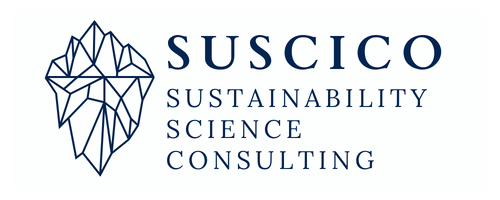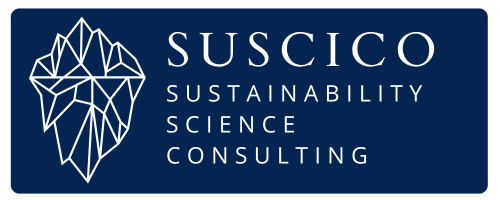
Product Carbon Footprint (PCF) & Life Cycle Assessment (LCA)
Product Carbon Footprint (PCF) analysis is essential in today’s sustainability-driven marketplace, where understanding the environmental impacts of your products is not just a competitive advantage—it’s a necessity. At SuSciCo, we provide tailored Life Cycle Assessment (LCA) and PCF reporting services to help your organization evaluate, reduce, and communicate the environmental impacts of your products. Our solutions align with global standards, empowering your business to make data-driven decisions and build trust with stakeholders.
Whether you are a multinational corporation striving to meet regulatory requirements or a growing small business looking to enhance your sustainability credentials, SuSciCo offers customized solutions to meet your needs. From assessing the carbon footprint of a single product to conducting full-scale life cycle assessments across your portfolio, we assist businesses at all stages of their sustainability journey, ensuring that their strategies are impactful and credible.
We specialize in using globally recognized methodologies, including ISO 14040 and ISO 14044 standards for Life Cycle Assessment (LCA) and ISO 14067 standards for Product Carbon Footprint (PCF), ensuring consistency, transparency, and scientific rigor. We also integrate best practices from the GHG Protocol Product Standard and PAS 2050 to deliver precise and actionable insights tailored to your needs.
SuSciCo’s expertise bridges the gap between sustainability goals and measurable outcomes, enabling your organization to lead in the green economy with confidence.
Organizations need Life Cycle Assessment (LCA) and Product Carbon Footprint (PCF) reports for several strategic, regulatory, and operational reasons:
Regulatory Compliance
Meeting Environmental Standards: Governments and regulatory bodies increasingly require organizations to measure and disclose the environmental impacts of their products.
Avoiding Penalties: Non-compliance with environmental regulations can result in fines or restrictions on market access.
Market Competitiveness
Satisfying Consumer Demand: Consumers are prioritizing environmentally friendly products. LCA and PCF certifications validate claims of sustainability.
Access to Green Markets: Many retailers and supply chain partners demand sustainable certifications to align with their ESG goals.
Environmental Impact Reduction
Identifying Hotspots: LCA helps pinpoint stages in the product lifecycle that contribute the most to environmental harm, enabling targeted improvements.
Reducing Carbon Emissions: PCF assessments allow organizations to track and lower their carbon footprints, contributing to climate action goals.
Risk Management
Supply Chain Resilience: Understanding lifecycle impacts helps organizations anticipate risks, such as resource scarcity or regulatory changes, and adapt their operations.
Reputation Protection: Demonstrating commitment to sustainability can safeguard a brand from scrutiny and backlash.
Driving Innovation
and Efficiency
Transparent and Informed Decisions: LCA and PCF provide clear insights into supply chain impacts and enable better material sourcing and supplier assessment.
Eco-Friendly Design and Cost Savings: Leverage lifecycle data to innovate sustainable products, reduce waste, and optimize operations for improved efficiency.
Stakeholder Engagement
and Reporting
Transparency: Reporting LCA and PCF results in ESG reports fosters trust with stakeholders, including investors, customers, and regulators.
Alignment with ESG Goals: These assessments provide measurable data for sustainability metrics, making it easier to align with frameworks like GRI, TCFD, or CDP.
Challenges in LCA and PCF Assessments
Organizations face several hurdles when implementing Life Cycle Assessment (LCA) and Product Carbon Footprint (PCF) evaluations. These include the complexity of collecting and managing accurate data across the product lifecycle, applying advanced methodologies in line with global standards, navigating a dynamic regulatory environment, and effectively communicating results to stakeholders. Additionally, aligning the insights from these assessments with broader business strategies often requires a nuanced and strategic approach.
How SuSciCo Addresses These Challenges
- Comprehensive Data Management: We ensure accurate, high-quality data collection and verification using robust processes.
- Expert Methodological Application: Our expertise in international standards like ISO 14040/14044 and ISO 14067 ensures consistent and reliable assessments.
- Regulatory Guidance: We provide insights into compliance with current regulations and prepare your organization for future requirements.
- Clear Reporting: We simplify complex results into actionable insights, enabling effective communication with stakeholders.
- Strategic Integration: We help incorporate LCA and PCF findings into your sustainability strategy, aligning with business goals for maximum impact.
With SuSciCo, your organization can navigate the complexities of LCA and PCF assessments with confidence, achieving transparency, compliance, and measurable progress toward sustainability goals.
IFRS S1 and S2 Compliance
Order Our Customized In-house
IFRS Reporting Training
to Lead in ESG!
equip your team with the skills to excel in sustainability.



